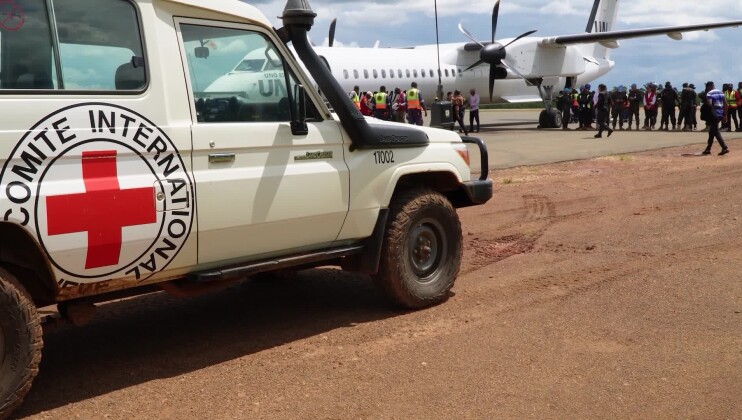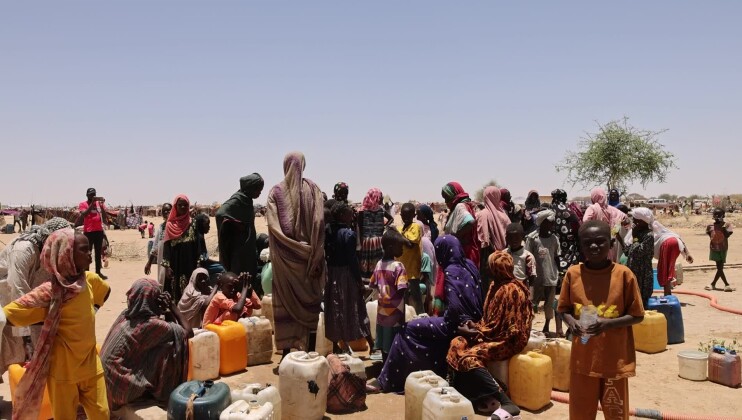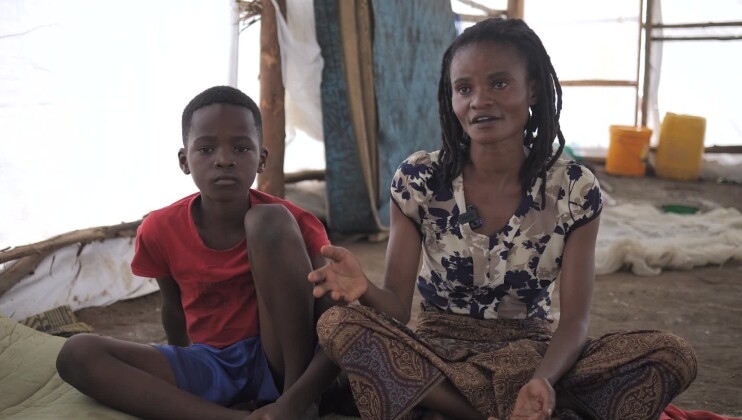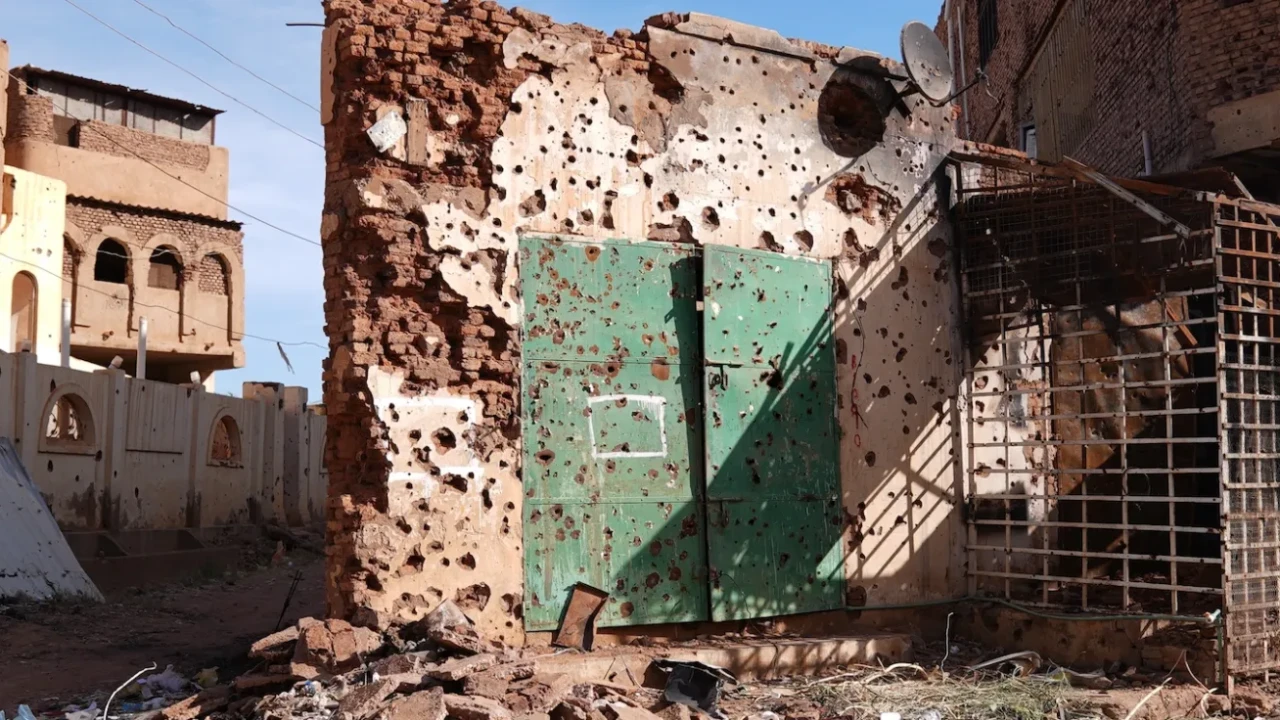South Sudan crisis - One year on
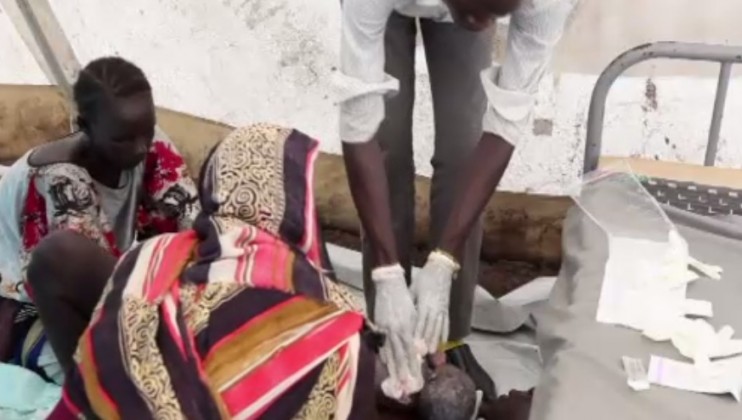
This is a modal window.
It is one year since the beginning of the current crisis in the world’s newest nation South Sudan. Millions of people have been affected by the ongoing conflict, which began on 15th December 2013 amid a dispute between its President Salva Kiir and his former deputy Riek Machar. Since then, hundreds of thousands of people have been internally displaced and have fled to the neighboring countries.
Those still in the country are dealing with unprecedented hardships with basic necessities like food, water and healthcare continually affected. Highlighting the pressing issues facing the people of South Sudan, Franz Rauchenstein, ICRC’s Head of Delegation in South Sudan, says: “The massive needs are essentially very basic needs: food needs, clean drinkable water, provision of health needs and need for families who need to be reconnected with one another, and also protecting the children during these hard times. And also health promotion needs because these are people who are vulnerable, not leading their functional life, they are fragile and their emergence needs need to be take care of.”
Individuals working in South Sudan, like ICRC surgeon Nikolai Dmitriev, confirm the concerns with healthcare in the country, “We are working in very basic circumstances and all our job, I mean surgery which we can do here, this is completely based on the principles of war surgery. It means that we are doing not something sophisticated but any procedures with, which can save life or salvage function of the limb, something like this. It’s not sophisticated techniques that, but they are life-saving.”
ICRC’s mobile surgical teams have performed more than 3,000 surgeries. As the fighting continues, Nikolai Dmitriev speaks of the challenges he and his staff face on a daily basis, “The influx of the patients it’s unpredictable. Today we have only one patient, tomorrow we can get 100 patients. Under this permanent fighting they need our help in fact even more; apart from this fresh injury people, we have a lot of people who is suffering because of gunshots which they got several months ago or three or four months ago. Mostly this is very complicated cases.”
Highlighting the issues with shelter and food, James Tut, South Sudan Red Cross Emergency Preparedness and Respond officer (SSRC EPR officer) says, “The nation has been in the crisis for long time, many people are really IDPs coming from different directions like Malakal, Bor and Ayod recently Nasir. These people really they don’t have shelter, no food even, we are here now distributing food-aids up to nearly 5000 in population. These are not the all total population that are registered. People are really suffering in need of shelter and the food-assistance as well.”
Mary Nyakola Thoat is one of many struggling with life in South Sudan. As she describes it, life in this young nation remains precarious, “I find it difficult (regarding the situation) because there is no food and people before were transporting food from Bor to here but when fighting broke out there were no more food coming from Bor. When we arrived people were going to the bush to collect leaves of trees and fruits. We collected these leaves and then we ate them.”
Since the beginning of the crisis the ICRC, in collaboration with the SSRC, has delivered food to more than 600,000 people. Mary Nyakola Thoat is registered to benefit from the food programme, and then in turn she helps out those who are not yet registered, “The food we usually share it with them who are not registered because they too are suffering from hunger. We share this food for eight people with a total of 14 people. We divide it into kilograms among each other and then wait for the next distribution.”
In addition, the ICRC is also focusing on provision of clean drinking water and vaccinations of animals to help improve livelihood. The International Federation of the Red Cross and Red Crescent Society (IFRC) is helping strengthen the capacities of the SSRC with technical support in disaster management and coordination, and mobilized its global surge capacity to respond to and ultimately curb the cholera outbreak in Eastern and Equatoria State. Fourteen Red Cross organisations from all over the world (Austria, Canada, Denmark, Finland, Hong Kong, Japan, Kenya, Monaco, the Netherlands, Norway, Sweden, Switzerland, Taiwan and the United Kingdom) are also supporting the SSRC with technical and financial support. The ICRC is receiving financial and logistical support in providing lifesaving relief to people in South Sudan from the Red Cross organizations in the United Kingdom, Switzerland, the United States, Norway, Sweden, Canada, New Zealand, Denmark, Finland and Iceland.
Shotlist
Location: Various, South Sudan
Length: 04:50
Format: HD & SV H264 MOV
Production: Pawel Krzysiek
Camera: Pawel Krzysiek / Jacob Zocherman
Sound: English / Nuer
ICRC ref: AV225N
Date: 3-19 November 2014
Copyright: ICRC access all
00:00 Food being air-dropped as those affected look on and collect it
00:07 SOUNDBITE (in English): Franz Rauchenstein, ICRC Head of Delegation South Sudan, Juba, South Sudan:
“The massive needs are essentially very basic needs: food needs, clean drinkable water, provision of health needs and need for families who need to be reconnected with one another, and also protecting the children during these hard times. And also health promotion needs because these are people who are vulnerable, not leading their functional life, they are fragile and their emergence needs need to be take care of.”
00:33 Patients in open-air mobile medical facilities
00:41 New born child in the open-air mobile medical facilities
00:46 Aerial view from a medical emergency plane
00:50 Shots of plane landing
00:55 Shots of a patient on a stretcher being evacuated from the plane to the medical facility
01:09 Shots of patient on the surgical table as medical personnel begin work
01:26 Dr. Nikolai Dmitriev checking a patient
01:31 SOUNDBITE (in English): Dr. Nikolai Dmitriev, ICRC Surgeon, Waat, South Sudan: “We are working in very basic circumstances and all our job, I mean surgery which we can do here, this is completely based on the principles of war surgery. It means that we are doing not something sophisticated but any procedures with, which can save life or salvage function of the limb, something like this. It’s not sophisticated techniques that, but they are life-saving.”
01:46 SOUNDBITE (in English): Nikolai Dmitriev, ICRC Surgeon, Waat, South Sudan: , “The influx of the patients it’s unpredictable. Today we have only one patient, tomorrow we can get 100 patients. Under this permanent fighting they need our help in fact even more; apart from this fresh injury people, we have a lot of people who is suffering because of gunshots which they got several months ago or three or four months ago. Mostly this is very complicated cases.”
02:20 Plane dropping food as people wait and watch it pass by
02:26 People running towards the food dropped from the plane
02:32 People picking up the food dropped from the plane
02:36 People waiting for the food distribution
02:41 Close shot of a woman with her registration card
02:47 Women picking up sacks of grain
02:53 Close-up shot of grains
02:57 SOUNDBITE (in English): James Tut, South Sudan Red Cross Emergency Preparedness and Respond officer (SSRC EPR officer), Waat, South Sudan: “The nation has in the crisis for long time, many people are really IDPs coming from different directions like Malakal, Bor and Ayod recently Nasir. These people really they don’t have shelter, no food even, we are here now distributing food-aids up to nearly 5000 in population. These are not the all total population that are registered. People are really suffering in need of shelter and the food-assistance as well.”
03:28 Various shots of people picking up sacks of grains and heading back home
03:44 SOUNDBITE (in Nuer): Mary Nyakola Thoat, ICRC beneficiary/Victim of conflict, Waat, South Sudan: “I find it difficult (regarding the situation) because there is no food and people before were transporting food from Bor to here but when fighting broke out there were no more food coming from Bor. When we arrived people were going to the bush to collect leaves of trees and fruits. We collected these leaves and then we ate them.”
04:15 SOUNDBITE (in Nuer): Mary Nyakola Thoat, ICRC beneficiary/Victim of conflict, Waat, South Sudan: “Yes they make a very great difference but many people are not registered. That is the challenge of the distributions because many people do not get their registration-cards. The food we usually share it with them who are not registered because they to are suffering from hunger. We share this food for eight people with a total of 14 people. We divide it into kilograms among each other and then wait for the next distribution.”
04:44 Shots of food being cooked
04:50 END
